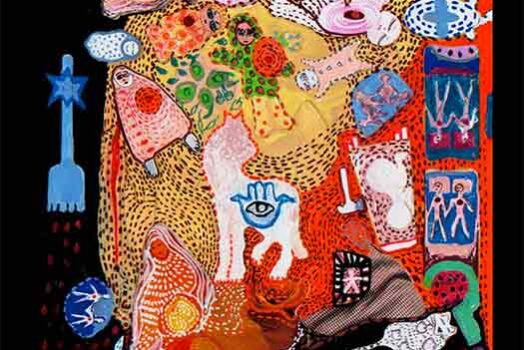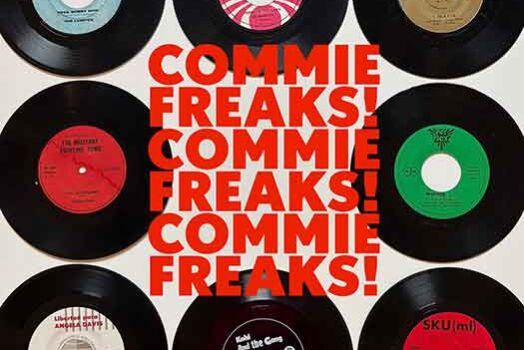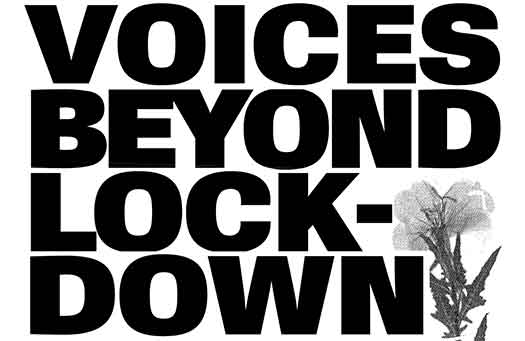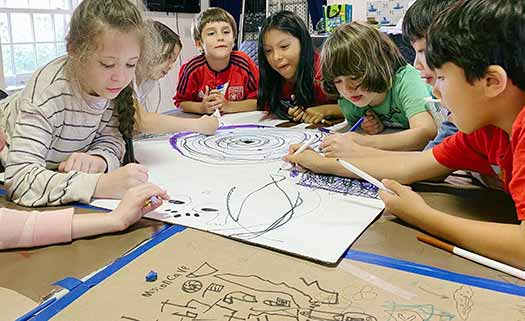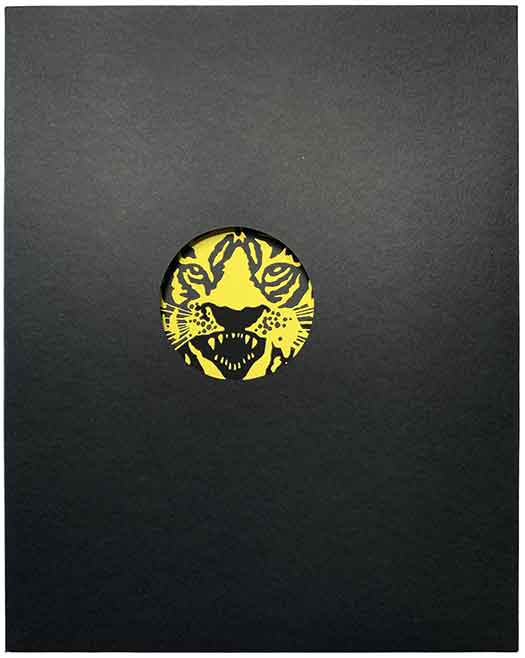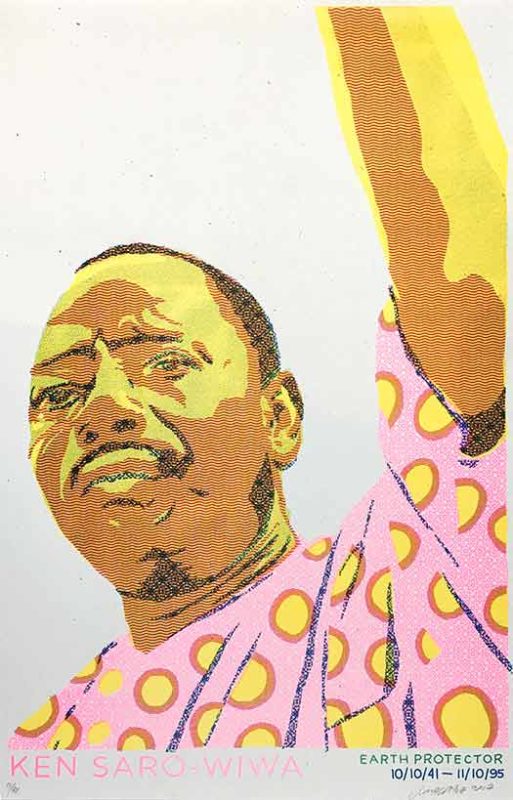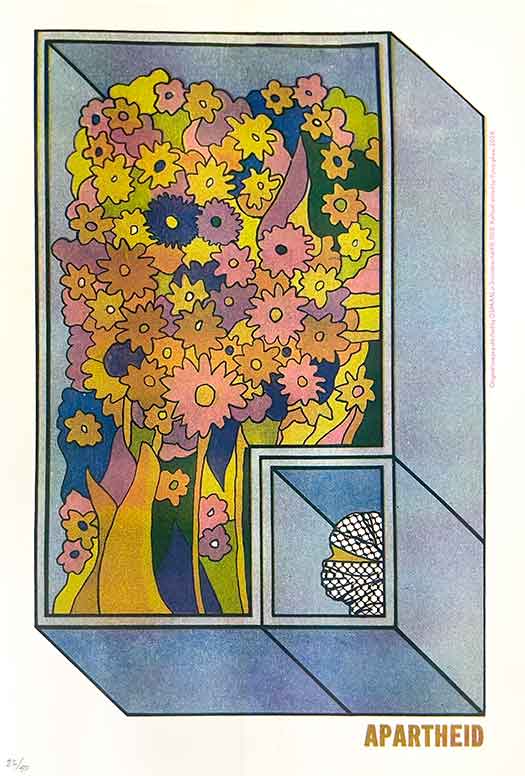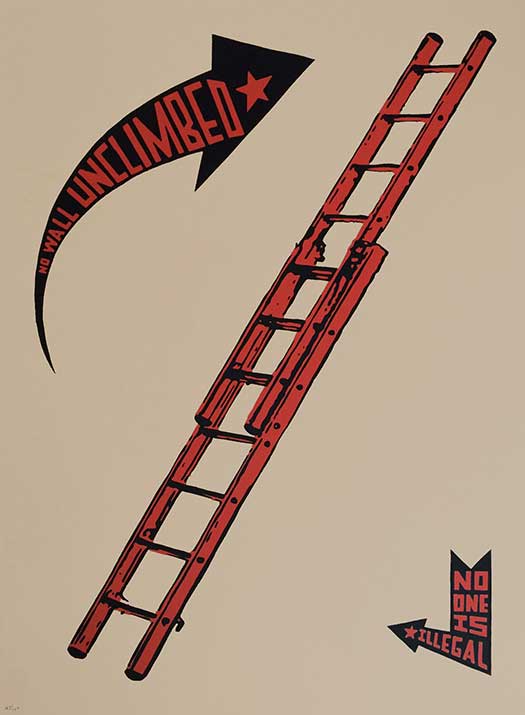I’m still trying to eek out some words and images from CPH artists for this blog series, so in the meantime I’m going to re-post a Q & A Joshua Kahn Russell and Dan Berger did with each other back in 2009 about the poster they co-designed about Matzpen:
The Israeli Socialist Organization, better known by the name of its publication, Matzpen (Compass), formed in 1962. It was the first organization in Israel founded on principles of anti-Zionism. Its membership joined Israeli Jews and Palestinian Arabs to resist Israel’s apartheid policies. Matzpen challenged Israeli manifest destiny for twenty-five years, and its legacy continues to animate anti-Zionist organizing within Israel and around the world. The poster was designed by climate and social justice organizer Joshua Kahn Russell and anti-imperialist author Dan Berger. Russell and Berger interviewed each other over the recent Rosh Hoshana (Jewish New Year) about the poster, Jewish radicalism, and Palestinian self-determination.
Dan: Hi Joshua. Happy new year!
Joshua: Hey Dan, Shana Tovah. So we made a poster, huh? I hear 5770 is the year of liberation-history education through social movement art.
Dan: Cultural work on a variety of levels has been so important to interrupt the false consensus around all Jews supporting Israeli colonialism.
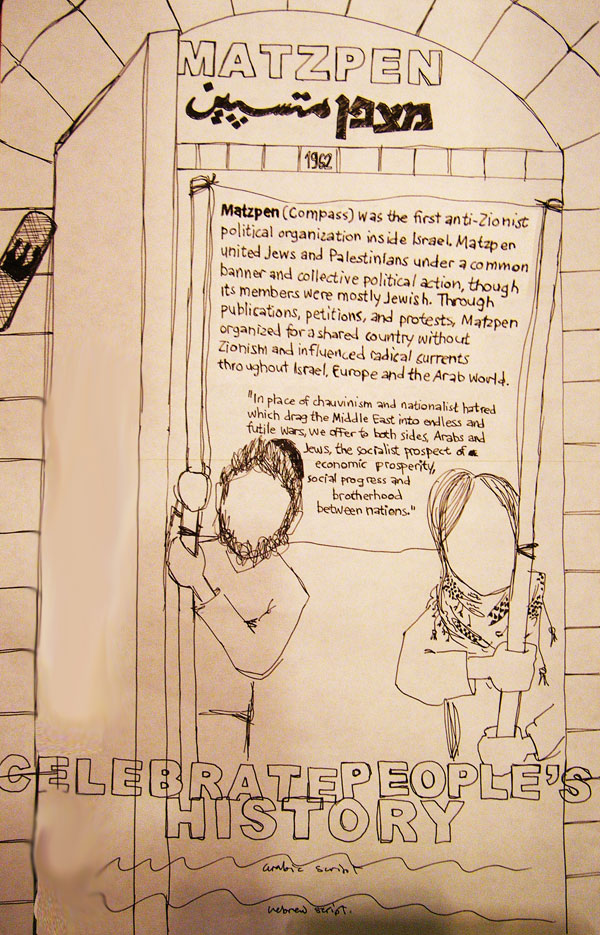
Joshua: Art is always and important medium and vehicle in social movements, but I think this is particularly so among Jews learning to challenge some of the dominant myths around Zionism. Artists like Israeli-born, Detroit-based rapper Invincible are creating amazing multimedia to tell stories and narratives of the occupation and colonialism, with songs that include extensive interviews with displaced people, footage of demonstrations and military violence, etc. I think this is partly because the subject is still (though increasingly less) taboo; art and creative expression is like the sugar that helps the medicine go down for an uncomfortable subject. We’re talking here about basic Jewish values: self-determination, social justice, freedom, interconnection and interdependence. Unfortunately, talking about them in the context of the harsh realities of the Israeli military and State make it confusing and difficult for Jews to speak frankly and honestly.
Dan: It seems like art is also helping make it less taboo—through reviving and creating new rituals to celebrate Jewish identity, acknowledging histories of Jewish resistance, and proclaiming solidarity as a value. Here in Philadelphia, for instance, progressive and radical Jews have organized alternate Rosh Hashana ceremonies. These are rituals that dedicate ourselves to working for justice and distance ourselves from reactionary uses of tradition. I know Jews in other parts of the country and around the world are engaged in similar projects of creation and reclamation.
I also gotta say how great it’s been, through putting this together with you, to be reminded of the diversity among Jews—diversity that Zionist politics have tried to erase, but that we drew upon, for instance, through the various friends who helped us translate the poster into Arabic and Hebrew, and who encouraged us through comments on various drafts of the text.
Joshua: Yeah—the way we created the poster itself challenges some of the dominant assumptions. People often have this false dichotomy of “Israeli Jews” and “Muslim Arabs.” Help in researching, translating, editing and modeling for drawing this poster came to us from secular Palestinians, Israeli Jews, Arab Christians, Iranian Jews, American Jews (both from secular-socialist and ultra-orthodox backgrounds), and Arab Muslims. We never could have created a poster like this without their help.
Dan: When I asked you to work on a Celebrate People’s History (CPH) poster together, you immediately suggested that we recognize some unsung heroes of Jewish anti-colonialism. How come?
Joshua: I’ve always admired the CPH poster series for reclaiming histories of organizing and resistance. This is one particular history that is relatively unknown yet more timely than ever. The tradition of solidarity—of “tzedek”—in Jewish history is strong, deep and beautiful.
Coming to consciousness about Israel and colonialism was a confusing and painful process for me, primarily because I didn’t realize that since before Israel’s creation, there have been Jews speaking up in a life-affirming way that both offers a vision of connection and community for the Jewish people and a direct challenge to some of the colonial assumptions that underpinned the birth of Zionism. I think so often American Jews grow up believing that the security of the state of Israel is THE thing that will guarantee the future survival of Jewish people, and for some folks, its easier to challenge that when they know that they are standing on the shoulders of many others who have done the same. I went to Brandeis University—a predominantly Jewish school with a history of social activism. When I got there, I was told that the largest student organization that ever existed there was a group called “confused Jews for peace.” I think in the United States (my main frame of reference) many, many young Jews want peace and justice but are simply presented with a polarized one-sided narrative designed to scare people into line. Validating this “People’s History” within Jewish culture makes new ideas, histories, and perspectives more accessible.
What about you?
Dan: It took me a few years of being politically active before I felt comfortable enough to even begin studying about Israel and Palestine. I was afraid to pay attention to it for fear of the strains it would cause within my family. My mom is the Israeli-raised child of Holocaust survivors, and my dad teaches about the Holocaust. Growing up, I was taught that “we” got Israel because of the Holocaust. I was also taught that Israel needed to be defended and maintained at any cost, lest an ever-present Nazism be allowed to finish the job. I grew to really question that position rather accidentally: in 2000, I was reading a book from the early 1980s called “Settlers: Mythology of the White Proletariat.” The book chronicles centuries of white betrayal to people of color struggles in the United States, especially in regards to labor and class struggles. The author argues that the birth of the U.S. through the settler-colonial expropriation of land and labor gave European descendants undue material advantages that has shaped their consciousness ever since and created an almost inherent phenomenon of color-coded class betrayal. A sentence toward the end of the book made comparisons to similar phenomenon in other settler-colonial societies, namely Israel and South Africa. Coming after a couple hundred pages of trenchant, depressing history chronicling political treachery, that one sentence explained a lot for me about the creation of and reality in Israel.
Was there something in particular that changed for you or that you learned that made you take a more active role in working against the occupation?
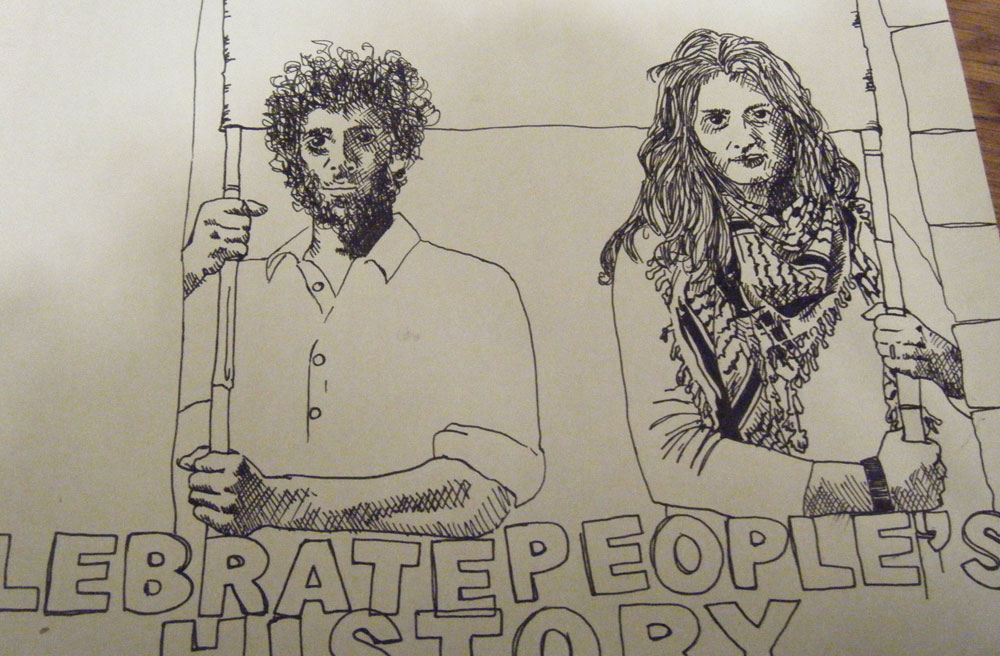
Joshua: I grew up going to a synagogue with a kind of liberal Zionism—affirming Israel is our home, and how violence is bad and we wished everyone could just get along. But when I got to school I encountered fierce militaristic ultra-right Zionism. It was indistinguishable from outright naked racism to me, complete with dehumanizing terms for Arabs, and I didn’t quite know how to process it. I was like “this is NOT my community.” There were a few Israeli and Palestinian students who went to Brandeis and we became quick friends. They were the ones that contextualized things for me. I learned that the Zionist narrative of Israel simply doesn’t allow space for the experiences of Palestinians – there was no way to process or make sense of what my friends’ families had gone through without fundamentally challenging that framework.
One thing I found interesting was that the most intense and militaristic kids on campus were diaspora Jews from the US who had never been to Israel (except maybe on a week-long Bar/Bat Mitzvah trip to Tel Aviv)—the actual Israeli students had no qualms about challenging their government and State. They were the first Jews I met who stood up and said “yes, we are Jewish and we believe that the actions of this State are not only contrary to Jewish values, but threaten the Jewish people too.” I don’t think Jews are as chauvinistic as to need only a self-interested argument to have concern over occupation (i.e., it doesn’t need to be about Jews), but speaking in that kind of language claimed a space of legitimacy for those ideas because it directly contested the idea that Judaism = Zionism. Until then I really did believe challenging Israel was “antisemitic.”
Dan: I totally know what you mean! I remember sitting shiva for my grandmother in 2002. We were at my aunt’s house after the funeral, just family, and talk turned to Israel. Everyone was bemoaning the situation there when my mom, the only Israeli in a room of American Jews and by far the most conservative person there, said “It really is like apartheid there [for Palestinians]. But what are you going to do if you want to maintain a Jewish state?” My other family members protested at the use of the term apartheid. For me, the bluntness was clarifying: even some Israelis comfortable with the racist policies of exclusion and exploitation can clearly identify what it takes to maintain the system. It also clarified the terms: the problem of Zionism is not about religion or culture but about the damage wrought by ethnically exclusive regimes.
Joshua: I learned that Zionism is like many ethnic Nationalisms – fervent, passionate, and perhaps easy for an outsider to be sympathetic to when the group is oppressed and dispossessed – but if that group gains State power or economic dominance, the ideology becomes oppressive and tyrannical. It’s bad for everyone. There are lots of kinds of Zionism, each with different politics. But regardless of the variant, colonialism, displacement, and occupation are underpinnings that must be challenged and undone.
What are the kinds of lessons or insights about this kind of work that you hope people will take from the poster or be inspired to explore?
Dan: Contributing to antizionist culture—that is, fighting colonialism with visions of self-determination and justice—helping that grow through art that makes the politics irresistible, or at least damn good looking, is something that’s been exciting throughout the process of putting it together. I wanted to honor Matzpen as an early and still influential example of that sort of politics and culture, working directly within Israel and being heard around the globe. I hope, as is the idea behind the Celebrate People’s History series in general, that the poster will inspire people to learn more about Matzpen and to be similarly inspired by the work of this small but courageous group of folks directly confronting settler colonialism as such. I hope it helps create more space for more Jews to speak up in solidarity with Palestinian struggles for justice. And I hope it helps create more space for more Americans to speak up against settler colonialism in our own country.
More generally, several people have argued that Israel’s latest assault on Gaza may have served to isolate it internationally once and for all. But given news reports of their desire to attack Iran and the unending flow of money and military hardware going from the U.S. to Israel, I’m not so sure. I have, nonetheless, been encouraged by the political space and visibility now available to antizionist Jews—perhaps more now than ever in the 61 years of the Israeli state. Things like the Gaza Freedom March and the growing Boycott, Divestment and Sanctions movement offer the best hopes for a just peace. That, and our snazzy new poster.
What about you?
Joshua: I’m hoping at the very least that the poster is a good conversation-starter for folks!
Joshua is an artist and activist, and has his own blog you can read HERE. Dan has published a number of books, most recently The Hidden 1970s, and he has a blog HERE. Their Matzpen poster can be purchased for only $4 right HERE! You can check out all the Celebrate People’s History posters HERE.

